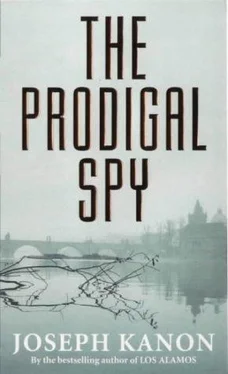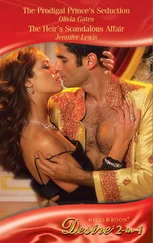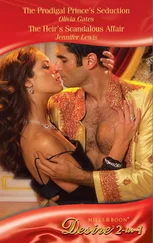“That depends. Sometimes it’s better to let people stay in place for a while.”
“To watch them.”
His father nodded. “Or turn them. It’s been known to happen.”
“Come play on our side,” Nick said evenly. “Your choice.”
“Nick-”
“Do you know them, the people you’re going to sell?”
“No.”
“That must make it easier.”
“Yes, it does.” He looked at Nick steadily. “Your scruples are misplaced,” he said, his voice cool, a kind of reprimand. Then, backing down, “Nick, it’s the only way.” He turned, wanting to bring it to an end. “Walk with me. I’ll be late.”
Nick stared at his back, the familiar hunch of his shoulders, then took a step, pulled along.
“And what if they don’t leave them in place? Then what happens?”
“What you’d expect. The usual scurrying.”
“I mean, what happens to you? Your life wouldn’t be worth-”
“Like the old Comintern days? Send someone out to deal with me? Not anymore. I’ll be all right, once I’m there.”
“And if you’re wrong?”
He smiled a little. “Never bet against yourself, Nick.” Nick glanced up, recognizing it, his old rule of thumb, when they played cards at the cabin. “That sort of thing’s a little old-fashioned, even for the comrades. I’ll be all right, if we move quickly.”
“How quickly? Larry’s in Paris. You know, at the peace talks. He won’t be able to just drop everything.”
“To negotiate for me? Yes, he will. Nobody wants peace. But they’ll want this.”
I don’t want it, Nick thought, so clearly that for a second it seemed he’d said it out loud. But his father’s face, eager, full of plans, registered nothing, and Nick looked away before it could show on his own, the one betrayal his father did not expect. And was it true? Maybe it would be different later, when it was over. Maybe it was this he didn’t want, the plotting and covered tracks, looking over his shoulder, the tired city, gray, expecting the worst.
“Then why wait?” he said suddenly, an escape hatch. “I could go this afternoon.”
“This afternoon?” His father turned to him. “So soon.”
“What’s the difference? Nobody knows I’m here anyway.”
“But they will later. They’ll check. Visa dates. The hotel. It has to look right. It wouldn’t make sense, your coming for a day. That’s not a visit.” He stopped. “Besides, I don’t want you to leave.”
“But the sooner we-”
“Just in case.”
“In case what?”
“In case.”
“Don’t bet against yourself,” Nick said,
“No. But sometimes-” He paused again. “In case it goes wrong,” he finished. “At least we have this time.” He put his hand on Nick’s shoulder. “It’s not so long for a visit. I’ll show you things.” A weekend parent, offering treats.
Nick nodded, embarrassed. How could he go?
But before he could say anything else, make an excuse that would play, he saw his father look past him. He withdrew his hand, alert.
“V alter, jak se mate?”
Nick turned.
“Anna,” his father said, but it was another Anna, broader and short, slightly out of breath from climbing the hill. She said something in Czech, but his father answered in English, “No, we have ten minutes. I’ll walk with you. An American,” he said, nodding toward Nick, an explanation for the English. “I was showing him the way to the Loreto.”
“ Dobre odpoledne,” Nick said, offering his hand. “Nick Warren.”
“How do you do? Anna Masaryk.”
“Masaryk?”
“My uncle,” she said automatically, smiling a little at his surprise.
For a second he was jarred, as if she had stepped out of history, straight from the death scene in the Czernin courtyard over the wall. But she was no older than his father, someone you could meet in the street.
“You heard they took Milos‘s book?” she said to his father.
“Now it begins all over again. How many years this time? All that work.”
“Maybe he kept a copy.”
“What difference? They’ll never allow it now. They don’t want us to know.”
“You know,” his father said, consoling.
“Me? I always knew. But to prove it-they’ll never allow it. They’re afraid of the truth.” She caught Nick’s glance and said, “Excuse me. You’re visiting Prague?” Then Nick saw her look quickly at his father and back again, as if there were something she didn’t understand. Had she noticed the resemblance?
“He’s just been to the Narodni Gallery,” his father said before he could answer. “Now the Loreto.” A tourist.
“Ah, yes. There’s a very good Goya. I hope you saw it.”
Nick nodded, hoping he wouldn’t have to describe it. What Goya? Were they going to talk about art?
“Of course, the best are in the Prado. But this is very good. It’s lucky that we have one.”
“Perhaps one day you’ll see the others,” Nick said. “In Madrid.”
The woman looked at him wryly. “I doubt it. It’s not allowed, to go there.”
“Oh,” Nick said, stumbling. “Well, perhaps when things are looser again.”
“It was never allowed. Not since ‘37.”
“Czechoslovakia doesn’t recognize Spain,” his father said, helping. “It’s still considered a Fascist state.”
“Oh,” said Nick, feeling awkward. Another wrong turning in the maze. The old categories, still current, like Masaryk’s death. Everything was yesterday here. No one had moved on. “I’m sorry.”
“So am I,” Anna said. “For the Goyas. You’re staying in Prague long?”
“No, only a few days.”
“Perhaps you would come to tea. If you have time.”
A casual invitation, to a stranger in the street?
“Yes, if I can,” Nick said vaguely, ducking it.
“Valter, you bring him. I never see you anymore. We’ll have a salon.” Was she trying to find out if they knew each other? “It’s good to speak English,” she said to Nick. “You can tell me about the new books. I like to keep up, but it’s so difficult now. Well, we’ll be late. Tomorrow then, if you can. Valentinska Street. It’s in the book. But of course Valter knows.” She took his father’s arm.
“Goodbye,” his father said, shaking Nick’s hand, acquaintances. “I hope you enjoy the Loreto.”
Nick looked at him, waiting for some sign, but his father avoided eye contact and moved off with her, an old couple on their way to a funeral. They reached the corner, and then his father stopped and walked back.
“I told her I forgot to ask your hotel,” he said quickly. “There’s something-the police report. How did you see it?”
Well, how? “A friend got it for me,” Nick said.
His father nodded to himself, thinking. “Was it a copy? You know, a carbon?”
“I don’t remember. Why?”
“They turned everything over to the Bureau. But if they kept a copy, that would explain it. Why they have it.”
“Does it matter? It’s there.”
“But not in the Bureau file. It doesn’t make sense.” He shook his head. “If they found the lighter, what happened to it? It would have been evidence, something like that. So why didn’t they use it?”
“You were gone.” Nick looked at him. “Maybe they will.”
“They still have it?”
Did they? “I don’t know. All I know is they found it. Or said they did.”
“In the hotel room,” his father said to himself. “My lighter.”
“Yes. The one with your initials.”
“But how did it get there?” he said, frustrated, like someone searching for his glasses.
“Well, that’s the question.”
“Yes,” his father said slowly, preoccupied again. “If I could remember-” His eyes narrowed in concentration, lost in his puzzle.
Читать дальше












